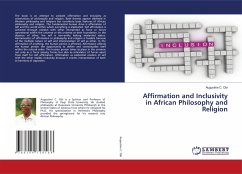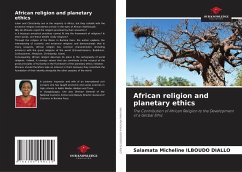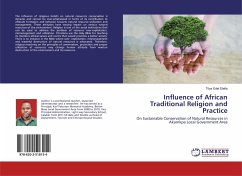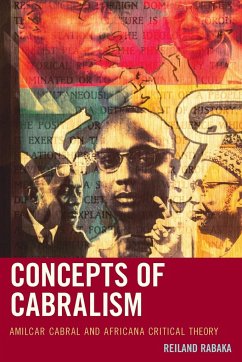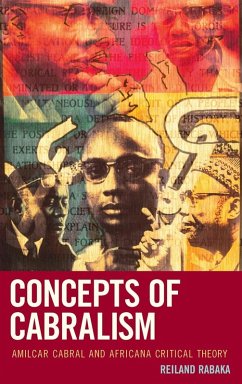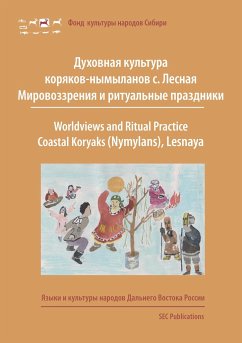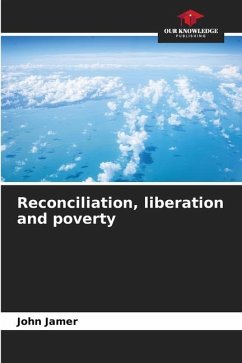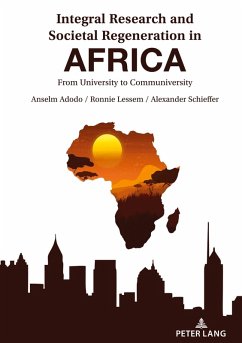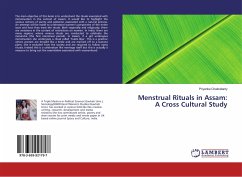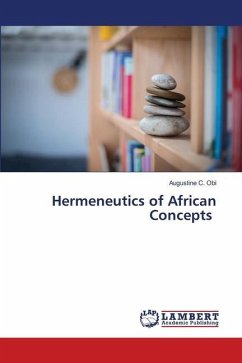
Hermeneutics of African Concepts
Versandkostenfrei!
Versandfertig in 6-10 Tagen
53,99 €
inkl. MwSt.

PAYBACK Punkte
27 °P sammeln!
Unlike Western philosophy, African philosophy prioritizes "how" over "what". Western discomfort with the age of technology as leveling all cultures and providing little room for variety is interpreted as an attempt to give prominence to "how". Western thinking in the machine era reveals that it is not worthwhile to repudiate the African "how". On the contrary, in a world where oftentimes ends are sought without regard to means or at the opposite extreme, no end at all, nothing is more refreshing than an approach in which different levels of meaning are continually expressed. African conception...
Unlike Western philosophy, African philosophy prioritizes "how" over "what". Western discomfort with the age of technology as leveling all cultures and providing little room for variety is interpreted as an attempt to give prominence to "how". Western thinking in the machine era reveals that it is not worthwhile to repudiate the African "how". On the contrary, in a world where oftentimes ends are sought without regard to means or at the opposite extreme, no end at all, nothing is more refreshing than an approach in which different levels of meaning are continually expressed. African conception of "how" which expresses the way or manner of things as independent force is prioritized over "what" because it is through "how" that we get to "what". Through this approach, Africans express the capacity to change things and their organization and at the same time maintain their own style. Africans are convinced that it is not the thing that determines the style and the person, but that the human person through his style gives meaning to things and that the dignity and force of the human person lie in the capacity to give meaning to things.



